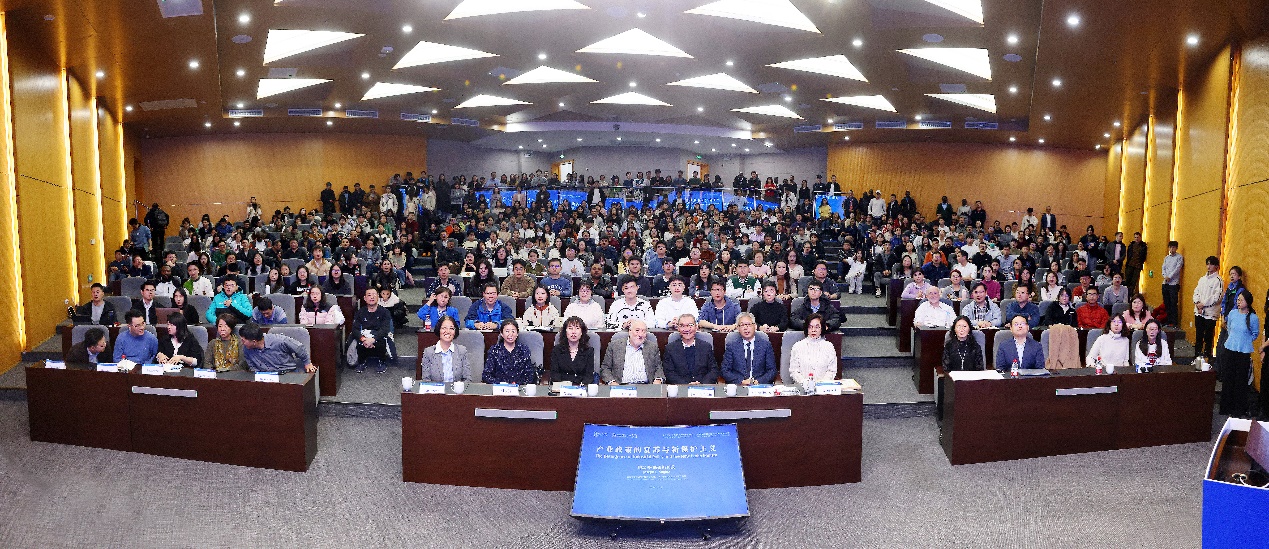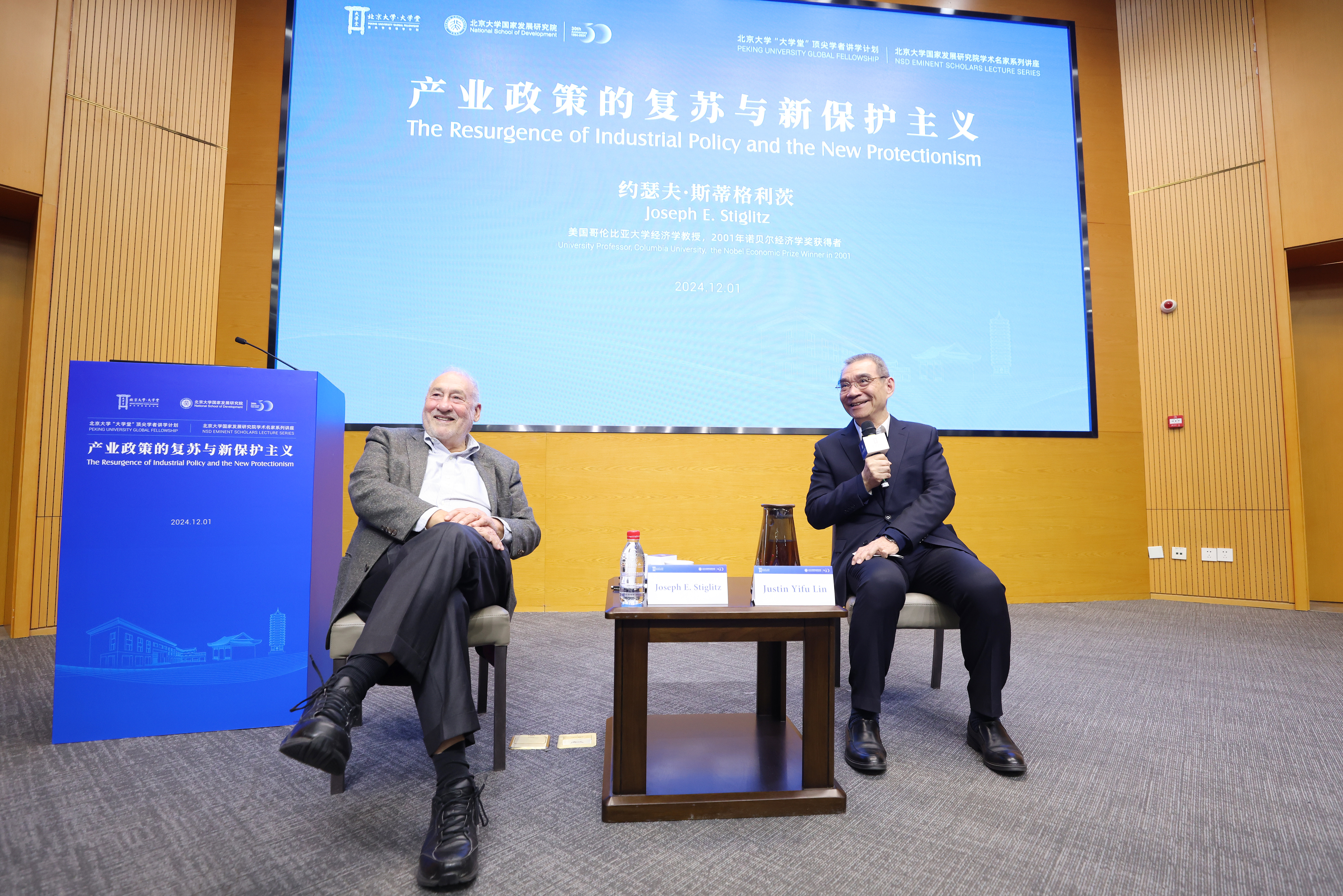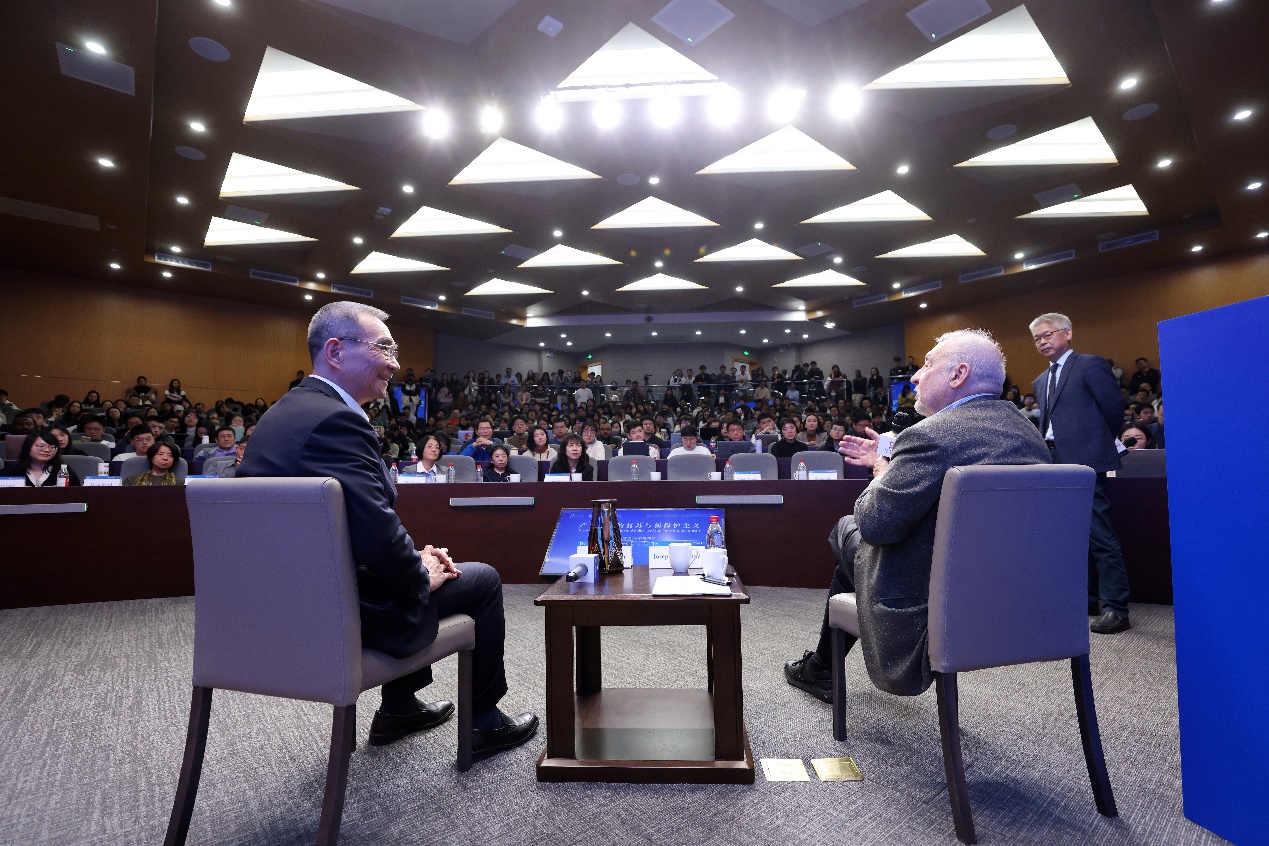Nobel Laureate Joseph E. Stiglitz at Peking University Global Fellowship: Exploring the Resurgence of Industrial Policy and the New Protectionism
Dec 09, 2024
Peking University, December 9, 2024: On December 1st, 2024, Joseph E. Stiglitz, an economic professor at the Columbia University and the 2001 Nobel Prize laureate in Economics, delivered a lecture titled "The Resurgence of Industrial Policy and the New Protectionism." This event was part of the Peking University Global Fellowship Program and the NSD Eminent Scholars Lecture Series. It was hosted by Prof. Huang Yiping, Dean of the National School of Development at Peking University. Prof. Justin Yifu Lin, Dean of the Institute of New Structural Economics and Honorary Dean of the National School of Development, served as a distinguished discussant for the event. This initiative is designed to bring leading global thinkers to engage with Peking University’s academic community on important contemporary issues and the urgent solutions.
 In the lecture, Prof. Joseph E. Stiglitz pointed out that the resurgence of the industrial policy has profound underlying reasons. He began by questioning the neoliberal economic policies that have shaped global thought for decades, arguing that they have failed to build resilient economies. The pandemic and geopolitical crises have exposed the vulnerabilities of the over-reliance on global supply chains, while climate change has emerged as an urgent global threat. This indicates the necessity of proactive government intervention and embedding climate goals into industrial policies to secure a sustainable future.
In the lecture, Prof. Joseph E. Stiglitz pointed out that the resurgence of the industrial policy has profound underlying reasons. He began by questioning the neoliberal economic policies that have shaped global thought for decades, arguing that they have failed to build resilient economies. The pandemic and geopolitical crises have exposed the vulnerabilities of the over-reliance on global supply chains, while climate change has emerged as an urgent global threat. This indicates the necessity of proactive government intervention and embedding climate goals into industrial policies to secure a sustainable future.

Professor Stiglitz then revisited classical economic theories, particularly David Ricardo’s work, which has long promoted the efficiency of free trade. He critiqued these models for ignoring crucial factors like risk and knowledge spillovers. Specifically, knowledge and information often flow across sectors within a country, while international dissemination is hindered by intellectual property protections and institutional barriers. Through a theoretical model from a general equilibrium perspective, he demonstrated how free trade, lacking knowledge transfer, could result in slower global economic growth and increasing inequality among nations.
"Free trade slows global economic growth and perpetuates neocolonial trade patterns," Professor Stiglitz said. He argued that, instead of relying on outdated free trade assumptions, governments must adopt industrial policies that support innovation, knowledge dissemination, and technological cooperation across nations. He called for collaboration between the academic community and policymakers to build a global economic system that not only promotes innovation and growth but also achieves fairness and sustainability. At the same time, industrial policy should be combined with efforts to address climate change and enhance supply chain resilience, providing developing countries with more favorable avenues for accessing technology and resources.

Following Professor Stiglitz’s lecture, Professor Justin Yifu Lin offered his reflections. Professor Lin expressed his appreciation for Professor Stiglitz's arguments, calling the lecture "music to my ears." Professor Lin described their shared efforts at the World Bank to revive industrial policy discussions, an issue previously sidelined in Western economic circles. "Industrial policy is no longer a choice but a necessity," Professor Lin remarked, aligning with Professor Stiglitz's call for countries to embrace strategies that prioritize national innovation and resilience in the face of global challenges.

The lecture ended with a lively Q&A session where students and faculty posed thought-provoking questions about the relationships between innovation, risks, and unstable global markets. Professor Stiglitz emphasized the importance of adopting industrial strategies focused on resilience, sustainability, and social equity, offering support to individuals and communities facing economic uncertainty.
Professor Stiglitz's lecture offered an inspiring vision for the future of industrial policy and global trade. The event attracted enthusiastic participation and active interaction from many faculty and students, who collectively explored issues such as industrial policy, knowledge spillovers, and international rules. This engagement is expected to stimulate further academic research and policy practices in related fields.
Written by: Pralhad Gupta
Edited by: Zhang Yang



